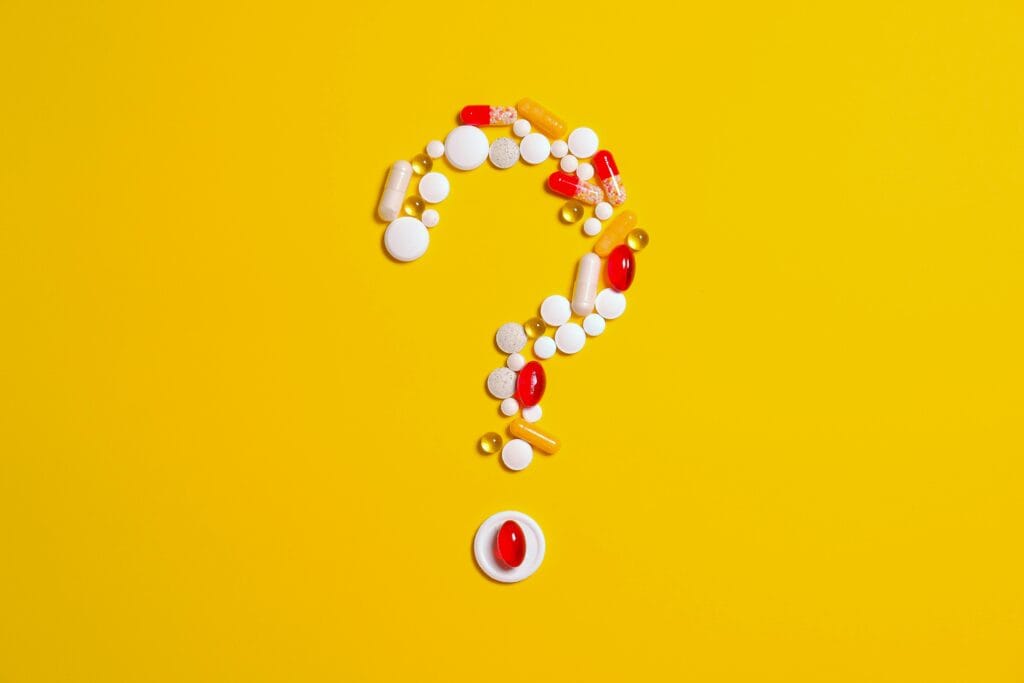FREE SHIPPING OVER $50
Warning: Your Daily Vitamin Habit Could Be Fueling Cancer, New Research Reveals

For many of us, taking vitamins and food supplements is a no-brainer. We see them as an easy way to fill nutritional gaps, boost our health, and guard against illness. Pop a multivitamin, maybe some extra Vitamin C or D, perhaps a handful of antioxidants – it feels like we’re doing something good for our bodies, right? It’s a daily habit for millions, a ritual we associate with wellness and longevity.
But what if this seemingly innocent habit actually comes with a hidden, and potentially serious, risk? What if, far from protecting you, taking too many vitamins and food supplements could actually be fueling cancer?
This is a warning that recent research is bringing to light, challenging our long-held assumptions about these popular health aids. Scientists and doctors are now urging us to reconsider our approach to supplementation, revealing that in some cases, excessive intake can turn a perceived benefit into a genuine danger.
The “More Is Better” Myth: Where We Went Wrong
For decades, the idea that “more is better” has subtly influenced our approach to vitamins and supplements. If a little bit of a nutrient is good for you, surely a lot must be even better, right? This logic is appealing, especially when faced with the complexities of modern diets and busy lifestyles. It’s easy to think a pill can compensate for missed servings of fruits and vegetables.
However, the human body is incredibly complex, and its systems operate on a delicate balance. Nutrients, while essential, can behave very differently at pharmacological (high) doses compared to physiological (normal dietary) levels. What starts as a beneficial compound can, in excess, become problematic.
Recent studies are now showing us that specific vitamins and antioxidants, when taken in unnaturally high doses, might actually promote the growth of existing cancer cells or even contribute to the development of new ones. This is a stark contrast to the popular belief that antioxidants, for example, are universally protective against cancer.
The Surprising Link: How Excessive Supplements May Fuel Cancer
The research is complex, but the emerging picture suggests that certain vitamins and antioxidants, particularly in high doses, can interact with the body in ways we didn’t fully anticipate, potentially fueling cancer development or progression.
1. Antioxidants: A Double-Edged Sword
We’ve been taught that antioxidants combat free radicals, unstable molecules that damage cells and contribute to aging and disease, including cancer. So, taking antioxidant supplements (like high-dose Vitamin A, E, or beta-carotene) seems like a logical defense, right?
The research suggests otherwise:
- Pro-oxidant Effect: In very high doses, some antioxidants can actually switch roles and become pro-oxidants, leading to more cellular damage rather than less.
- Cancer Cell Protection: If cancer cells are already present (even undetected), high doses of antioxidants can potentially protect these cancerous cells from oxidative stress, essentially making them more resilient and harder for the body’s natural defenses (or even chemotherapy) to destroy. Studies have shown this particularly with beta-carotene and Vitamin E.
2. Folate (Folic Acid): A Growth Factor for All Cells
Folate (or its synthetic form, folic acid) is vital for cell growth and DNA synthesis. It’s crucial during pregnancy to prevent birth defects. However, in high doses, folic acid might inadvertently accelerate the growth of existing cancerous or pre-cancerous cells.
- Undetected Cancer Cells: If you have early, undetected cancerous lesions, high doses of folic acid could provide the necessary building blocks for these rogue cells to divide and spread more rapidly.
- Synthetic vs. Natural: There’s ongoing research into whether the synthetic folic acid (found in supplements and fortified foods) behaves differently in the body at high doses compared to naturally occurring folate found in leafy greens.
3. Iron: A Catalyst for Damage
Iron is an essential mineral, crucial for carrying oxygen in the blood. But excess iron can be incredibly damaging.
- Free Radical Generation: Excess iron can act as a pro-oxidant, generating harmful free radicals that damage DNA and cells, potentially increasing cancer risk, especially for colorectal cancer.
- Inflammation: High iron levels can also contribute to chronic inflammation, which is a known driver of cancer progression.
Unless you have a diagnosed iron deficiency (like anemia), supplementing with iron without medical supervision is generally not recommended.
4. B Vitamins and Cancer Risk
While B vitamins are essential for energy metabolism, some studies have raised concerns about certain B vitamins at very high doses.
- For instance, research has linked high doses of Vitamin B6 and B12 to an increased risk of lung cancer in men, particularly smokers. While more research is needed to fully understand these associations, it highlights the potential for unintended consequences with excessive supplementation.
What This New Research Means for Your Supplement Habit
This isn’t to say all vitamins and supplements are bad. Many people benefit from supplementation for specific deficiencies or health conditions, especially under a doctor’s guidance. The key takeaway from this new research and the warnings from doctors is about dose and necessity.
1. Food First, Always
The vast majority of nutrients your body needs should come from a balanced, varied diet rich in whole foods, fruits, vegetables, lean proteins, and whole grains. Nutrients from food come with a complex array of co-factors and compounds that work synergistically and are unlikely to cause the same issues as isolated, high-dose supplements.
2. Understand Your Needs
Don’t guess. If you suspect you have a nutrient deficiency or have specific health concerns, talk to your doctor. They can order blood tests to check your vitamin and mineral levels and provide personalized recommendations for supplementation, if needed. Taking supplements “just in case” or because a friend recommended them can be risky.
3. Beware of Mega-Doses
Many supplements on the market contain doses far exceeding the Recommended Dietary Allowance (RDA) or Adequate Intake (AI) for a given nutrient. Be wary of these “mega-doses” unless explicitly advised by a health professional for a specific therapeutic purpose. For general health, more is definitely not always better.
4. Be Skeptical of “Miracle Cures”
If a supplement promises to cure all your ailments or offers unrealistic health benefits, approach it with extreme caution. The supplement industry is not as tightly regulated as pharmaceuticals, and claims can often be exaggerated or misleading.
5. Discuss with Your Doctor or Dietitian
This is the most important step. Before you start or stop any supplement, have an honest conversation with your doctor or a registered dietitian. They can help you assess your individual needs, identify potential interactions with medications, and guide you towards safe and effective supplementation practices.
Conclusion
Your daily vitamin habit might be doing more harm than good if you’re overdoing it. By understanding the potential risks associated with excessive supplementation, especially with certain vitamins and antioxidants, you can make informed choices that truly protect and enhance your health.
Prioritize a nutrient-dense diet, get regular exercise, manage stress, and ensure adequate sleep. If supplementation is necessary, do so strategically, with appropriate doses, and always under the guidance of a qualified health professional. This balanced and evidence-based approach is your best defense against disease and your surest path to long-term well-being.
Related Articles
- Doctors Say: This is the Best Time to Take Calcium Supplements for Maximum Benefits (Split, Half in the Morning and Half at Night)
- Tired, Swollen Legs? 8 Essential Vitamins to Recharge Your Leg Circulation
- Doctors Say: This is the Best Time to Take Vitamin C Supplements for Maximum Benefits (Morning on an Empty Stomach)
- Hair Loss? A Naturopathic Doctor’s 4 Must-Have Supplements for Thicker, Fuller Hair
- Tired, Anxious, Cramping? Your Body’s 8 Urgent Signs You’re Low on Magnesium







